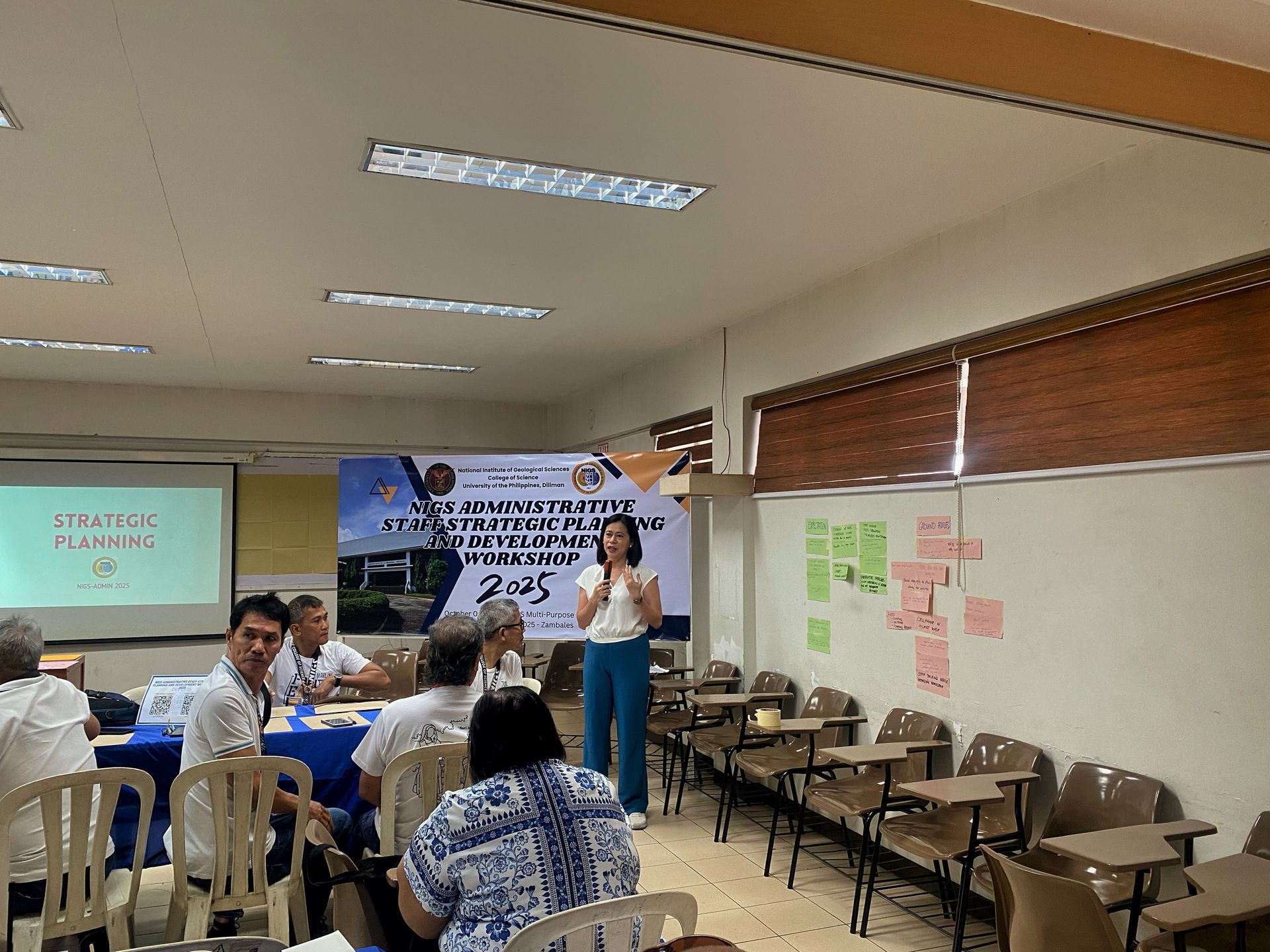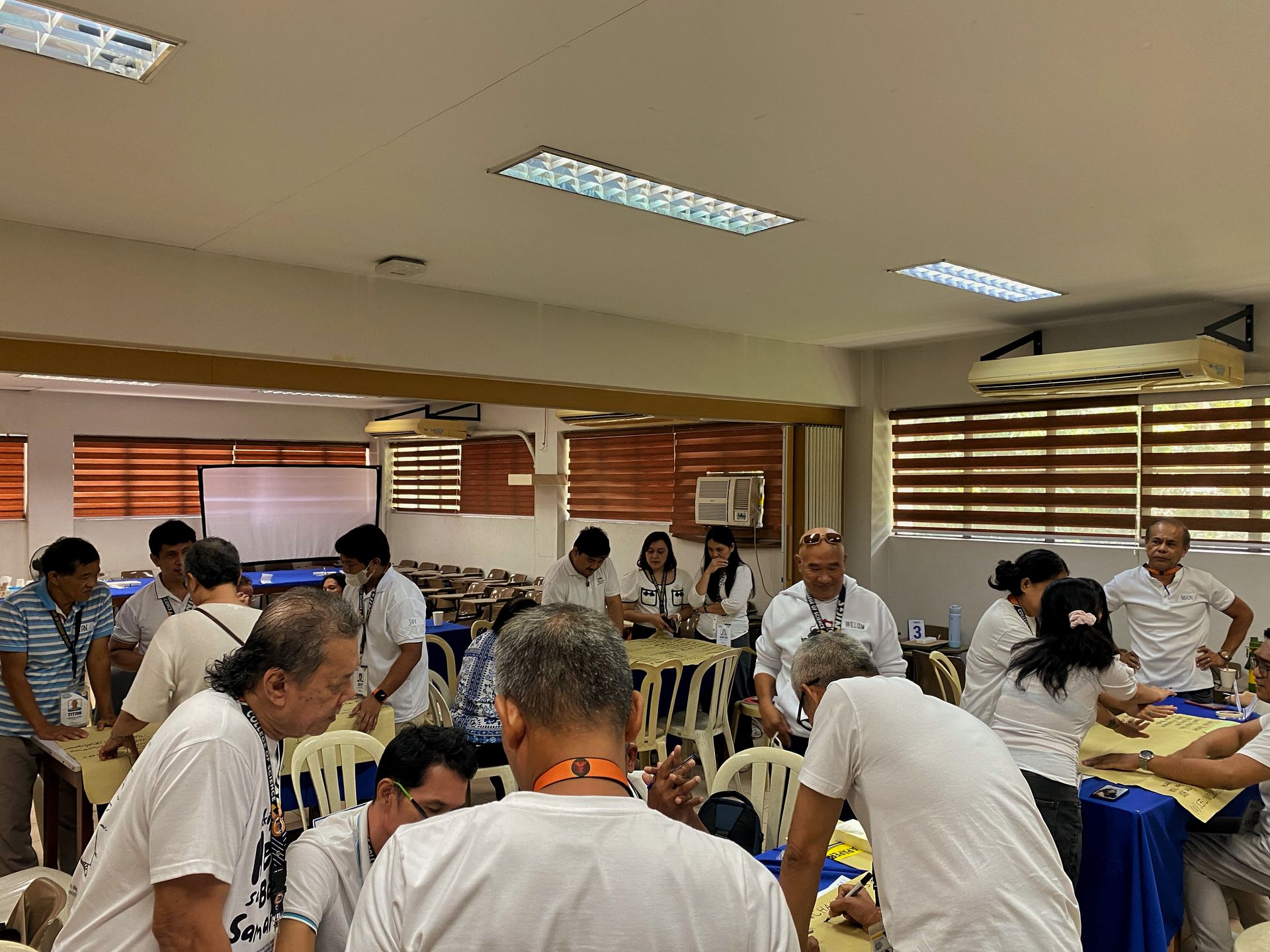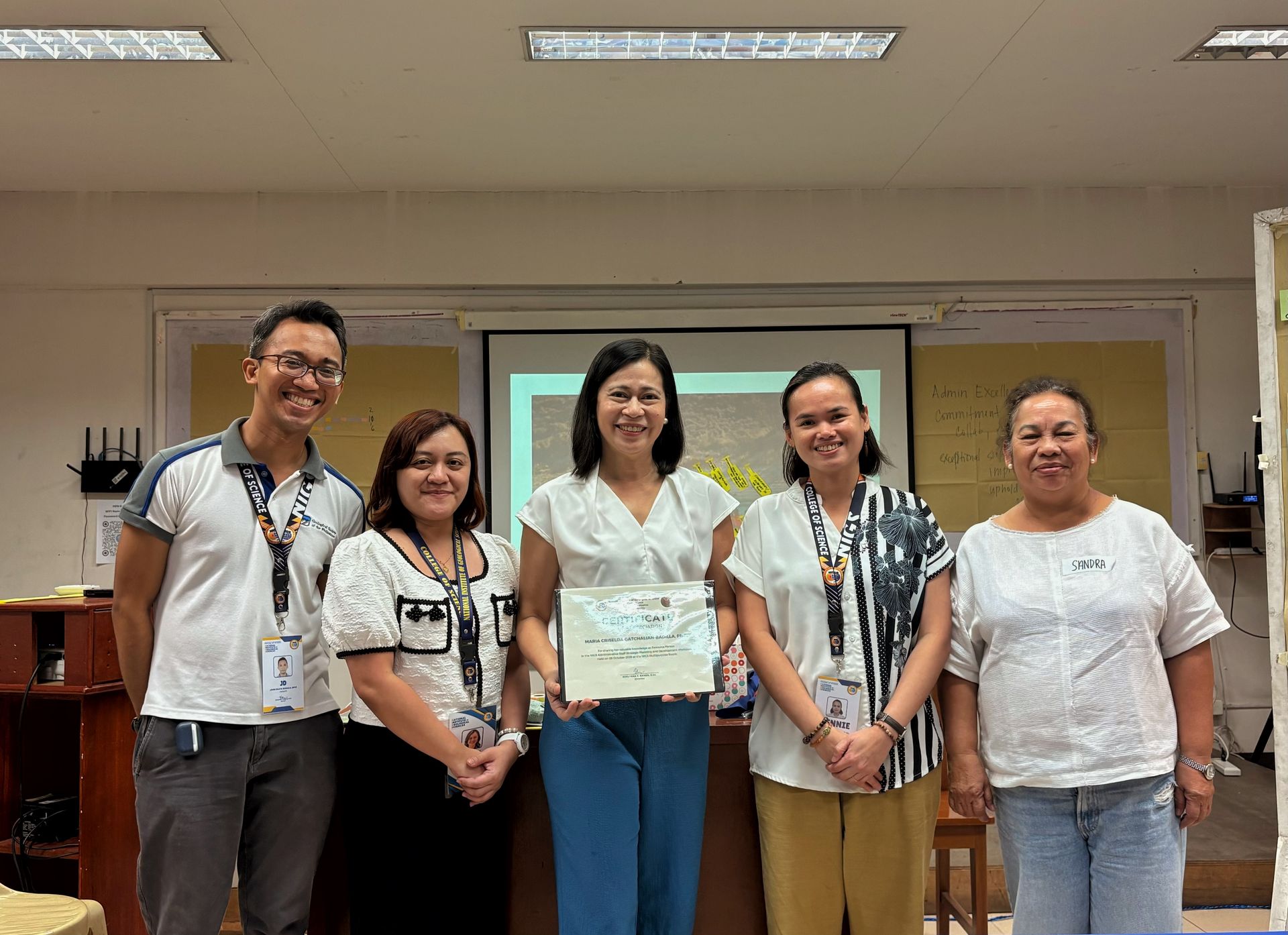The NIGS Administrative Staff Strategic Planning and Development Workshop was conducted on 09 October 2025, with a continuation on 17-18 October 2025. The workshop aimed to strengthen the capacity and cohesiveness of the administrative personnel of the National Institute of Geological Sciences (NIGS) through assessment, planning, and structured learning activities grounded in the principles of communication, collaboration, and self-awareness.
Held initially at the NIGS Multipurpose Room and later off-site in Zambales, the three-day strategic planning workshop provided a conducive environment for meaningful reflection and discussion. The sessions built upon the gains of the previous year’s initiatives, focusing on post-strategic planning assessments, the formulation of individual and collective development plans, and the establishment of a preliminary succession framework for administrative functions. Facilitated by Dr. Maria Criselda Gatchalian-Badilla, Professor from the Asian Institute of Tourism, the sessions tackled priority areas identified from the 2024 planning outcomes—namely, recognition and motivation programs, facilities and financial management, digital transformation, inter-unit collaboration, and the cultivation of an inclusive and supportive work culture.

In the course of the workshop, the administrative staff actively participated in discussions and planning exercises that evaluated their progress since the previous strategic planning. Through individual and group reflections, they revisited their roles and contributions in ensuring the Institute’s operational effectiveness. The group also revisited the Training Needs Assessment (TNA) results, which highlighted the need to improve inter-unit communication, feedback sharing, coordination, and leadership clarity. These insights guided the subsequent team-building activities conducted the following week.

The Johari Window-based sessions, held from October 17–18, 2025, provided experiential learning opportunities that complemented the outcomes of the strategic planning workshop. The program was designed around the Johari Window framework, a psychological model developed by Joseph Luft and Harrington Ingham (1955), which emphasizes the importance of self-awareness, feedback, and openness in fostering effective teamwork.
Participants engaged in a series of activities that mirrored real workplace scenarios. Feedback gathered from both activities indicated levels of engagement and satisfaction among participants. They appreciated the opportunity to reflect on their roles, reconnect with colleagues in a more open setting, and translate lessons from the workshop into practical applications in their daily work. Many shared realizations about the significance of effective communication, listening, trust, and accountability within a collaborative workplace.

Overall, the two-part program successfully met its objectives of fostering organizational alignment, enhancing teamwork, and promoting professional and personal growth among the administrative staff. The integration of strategic planning with self-awareness and communication-based learning provided a holistic approach to strengthening institutional performance. The sessions also reinforced the collective commitment of the NIGS administrative personnel to uphold efficiency, unity, and continuous improvement in support of the Institute’s goals and mandates.